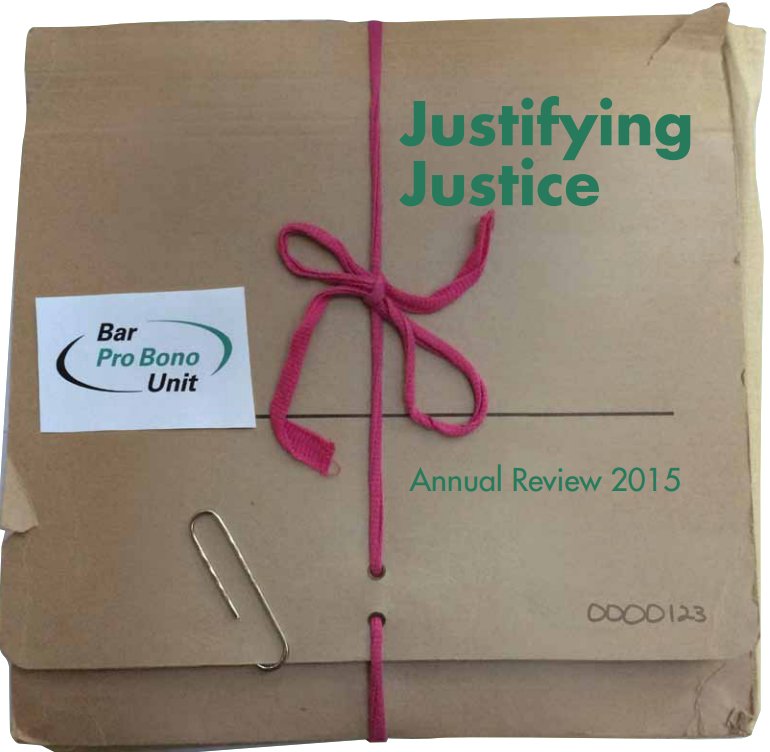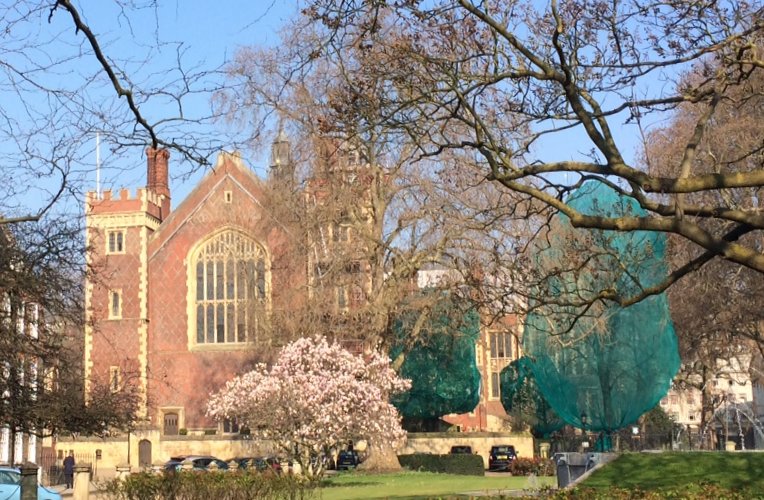Weekly Notes: legal news from ICLR – 18 March 2016
This week’s budget deficit of legal news and commentary includes a weary resignation and some other stuff. Keep reading. It’s good. Budget IDS gives Osbo the PIP As others have no doubt pointed out, the Chancellor, George Osborne, often gives the impression of a blindfolded man attempting to pin the tail of projected growth onto… Continue reading about Weekly Notes: legal news from ICLR – 18 March 2016
This week’s budget deficit of legal news and commentary includes a weary resignation and some other stuff. Keep reading. It’s good.
Budget
IDS gives Osbo the PIP
 As others have no doubt pointed out, the Chancellor, George Osborne, often gives the impression of a blindfolded man attempting to pin the tail of projected growth onto the donkey of the economy. However hoarsely his advisers shout “up a bit” “right a bit”, and so on, he always finds, on removing his blindfold, that the silly old donkey isn’t where he thought it was. This time, with cuts to welfare payments to the disabled being relied upon to fund more generous tax allowances to the relatively well-off, he seems to have been wearing ear-plugs against his public relations advisers, if he has any. What began as a few Tory rebels (such as Andrew Percy) signalling their discomfort has led to a major cabinet resignation. You can read the widely publicised resignation letter of Iain Duncan Smith here (via BBC).
As others have no doubt pointed out, the Chancellor, George Osborne, often gives the impression of a blindfolded man attempting to pin the tail of projected growth onto the donkey of the economy. However hoarsely his advisers shout “up a bit” “right a bit”, and so on, he always finds, on removing his blindfold, that the silly old donkey isn’t where he thought it was. This time, with cuts to welfare payments to the disabled being relied upon to fund more generous tax allowances to the relatively well-off, he seems to have been wearing ear-plugs against his public relations advisers, if he has any. What began as a few Tory rebels (such as Andrew Percy) signalling their discomfort has led to a major cabinet resignation. You can read the widely publicised resignation letter of Iain Duncan Smith here (via BBC).
By way of economic commentary, Paul Mason (of Channel 4 News fame) has written of how “austerity has hit the buffers” and the resignation of IDS over PIP is a “scalp” for Jeremy Corbyn.
Others may regard the Percy factor as more significant; others again, the fact that IDS is on the “leave” side in the EU debate, and may be expecting to return to his role in some post-Brexit reshuffle.
[Apologies to anyone offended by the facetious and no doubt wholly unwarranted image, by the way.]
Review of legal sector announced
Meanwhile, what has the budget brought or taken away from the legal professions? Among other measures affecting the sector, such as ratcheting up of stamp duty, Osborne announced a consultation over regulation of the legal services sector, which was
welcomed by the Law Society, as “an opportunity for better and simpler regulation, which needs to apply fairly and consistently across the legal services market”. We shall see. Nothing about legal services regulation since the Legal Services Act 2007 has been simple, and hardly anything seems to have been particularly beneficial, but it has certainly provided plenty of work for the various regulators. It seems counterintuitive that they should all happily give up their little patches for the sake of beneficial simplicity, but there you go.
Law Society chief executive Catherine Dixon said:
‘We support a review of regulation for the legal services market because we believe that it is an opportunity to get better and simpler regulation. Changes to the regulatory framework must address the current complex situation, with a multiplicity of regulators and the fact that, paradoxically, the most qualified and trained are the most regulated, while those who may not have any legal training are not regulated.
It’s a paradox we’ve pointed to on more than one occasion in this blog. It is particularly significant in view of the current consultation (PDF) on the future of McKenzie Friends, particularly those who charge fees.
Earlier this month (in a briefing paper on the potential separation of legal regulation from professional bodies) the Law Society recommended that
Professional standards should be distinct from the regulatory rules. Professional standards should be the responsibility of the profession and the regulatory rules should be the responsibility of the regulator.
The Society also insisted that
The title of lawyer should be defined, and as appropriate protected, to ensure that only legal professionals, i.e. those qualified as a solicitor or barrister or legal executive can use it. This will stop the public from being misled and those who have no formal legal qualification calling themselves lawyers.
Legal Aid
MOJ presses ahead with online system
The Ministry of Justice has as confirmed that all legal aid applications must be processed through its new online processing systems from the start of next month despite widespread reports from practitioners of system failure, according to Legal Voice. Over the last few weeks, legal aid lawyers have been highlighting major problems with the sight through Twitter under the hashtag #CCMSfail. CCMS stands for Client and Costs Management System.
At least one solicitor has intimated to Weekly Notes that the decision to force people to use the system, when it doesn’t work, might prompt another spate of judicial review applications.
Recent Reports
Justifying Justice
The Bar Pro Bono Unit has presented its latest report (PDF) in a rather eye-catching fo rmat (see image), as though it were the papers in a criminal trial, in which “Justice” is the defendant, charged with failing to serve justice. Under “Particulars of Offence” it says:
rmat (see image), as though it were the papers in a criminal trial, in which “Justice” is the defendant, charged with failing to serve justice. Under “Particulars of Offence” it says:
During 2015, access to Justice was limited for those who could not afford legal fees or obtain legal aid. In particular some of the poorest and most vulnerable in society have limited access to advice or representation.
The “Instructions to counsel” indicate that
We will offer evidence of members of the public accessing Justice through the Bar Pro Bono Unit (“the Unit”) and its associated schemes. The Bar Pro Bono Unit is a registered charity which matches pro bono legal assistance from volunteer barristers with those most in need. Interestingly members of the Bar have highlighted the role pro bono plays in delivering access to Justice in a recent survey conducted by the Unit stating that “pro bono is helpful to the administration of justice” and an “important contribution to providing ‘justice for all’”.
This is a timely trial in the year of Magna Carta’s 200th anniversary but I am reminded of its words and wonder if we might not emphasise this point in the defence:
‘To no one will we sell, to no one deny or delay right or justice.’
Clause 40, Magna Carta 1215
IBAHRI report
The International Bar Association’s Human Rights Institute (IBAHRI) this week published a report calling for greater involvement of the legal profession within the United Nations Universal Periodic Review (UPR) – a peer assessment of the human rights records of all 193 UN Member States – in order to maximise the impact of the international mechanism and ensure that the administration of justice is at the forefront of human rights protection. Snappily entitled “The role of the Universal Periodic Review in advancing human rights in the administration on justice” (March 2016), the report is to be launched at a high-level event at the UN’s Palais des Nations in Geneva, Switzerland. You can read the report via a download on the IBA website here.
Recent Speeches
Gove on Anti-Semitism
Speaking to the to the Inter-parliamentary Coalition for Combating Anti-Semitism Conference in Berlin on 15 March, the Lord Chancellor Michael Gove said:
“There is a duty on all of us in public life to speak out.
And to watch out for those with whom we might align ourselves
There is a particular duty on those of us charged with upholding justice to pursue justice in this cause.
That means asking how those who threaten Jewish lives, Jewish work and the Jewish people’s rights to self-determination – whether in Tehran or Tower Hamlets – can be confronted and held to account.
It also means – as the British Government has done – outlawing prejudice paid for by public money.
We have made clear that local authorities and public bodies cannot adopt BDS policies aimed at Israel; they cannot use public resources to discriminate against Jewish people, Jewish goods and a Jewish state.”
His purpose seemed to be twofold. First, to signal strong disapproval of BDS (boycott, disinvestment and sanctions) policies. Second, to plant a little seed of an idea about anti-semitism in the London Borough of Tower Hamlets. For some reason.
Lord Woolf on LIPs
Speaking at Solicitors Journal Live 2016, Lord Woolf, the former Master of the Rolls and Lord Chief Justice, said the increase in the number of litigants in person (LiPs) posed a risk to the independence of the judiciary, because it might be difficult to appear impartial to all parties when unrepresented ones needed help to present their cases. The Solicitors Journal quoted him as saying:
It’s a very considerable problem for the courts because judges find it very hard to conduct cases when one side has got barristers or solicitors and the other side has not,’ he said.
‘The judge finds increasingly he or she is drawn into the battle… If the judge does that, the impartiality of our system is absolutely undermined and the person who is unfortunate and doesn’t succeed in the case is at a loss because the judge is helping the other side,’ added Lord Woolf. ‘It’s so critically important that our courts should always be able to give the litigant who got before the judge the impression that, win or lose, they had a fair trial.’
He regretted that the reduction in legal aid and the rise in LiPs had created a need for McKenzie friends, some of whom, unintentionally or otherwise, “mislead litigants”, though there were some who provided great assistance.
Parish news
Who will save the Lincoln’s Inn trees?
Having been shat upon by a bird (probably a crow) from one of the trees in Lincoln’s Inn one balmy unjacketed summer’s day a couple of years ago, ruining a perfectly good shirt, I am disposed to avoid arboreal shade when strolling through the Inn. But these trees have been wrapped in green gauze, not to prevent birds pooing, but to prevent them nesting, before the trees are cut down to make way for ambitious new building developments. It’s sad to lose the trees, perhaps, but I’m glad Lincoln’s Inn is expanding its buildings rather than, as Inner Temple is doing, cannibalising its marvellous library for the sake of developing new facilities.
Law (and injustice) from around the world
Qatar
Poet released
 Some good news among the bad. The poet Mohammed al-‘Ajami has been pardoned and released after spending more than four years in prison on charges of ‘inciting the overthrow of the ruling regime’ and ‘insulting the Emir’ in his poetry. He was initially sentenced to life in prison, but that was reduced to 15 years on appeal in February 2013. However, English PEN, while welcoming the pardon and release, says he should never have been charged in the first place. Recently, English PEN joined Amnesty International to host a vigil for Al-Ajami and to deliver a petition for his release to the Qatari Embassy in London, from which this image is taken (via Flickr).
Some good news among the bad. The poet Mohammed al-‘Ajami has been pardoned and released after spending more than four years in prison on charges of ‘inciting the overthrow of the ruling regime’ and ‘insulting the Emir’ in his poetry. He was initially sentenced to life in prison, but that was reduced to 15 years on appeal in February 2013. However, English PEN, while welcoming the pardon and release, says he should never have been charged in the first place. Recently, English PEN joined Amnesty International to host a vigil for Al-Ajami and to deliver a petition for his release to the Qatari Embassy in London, from which this image is taken (via Flickr).
Turkey
Police storm international lawyers’ protest
The Law Society Gazette reports that Turkish police in riot gear have attacked a delegation of lawyers from France, the Netherlands, Switzerland and the UK, who were seeking to make a press statement outside court while attending the trial in Istanbul of 45 lawyers characterised by the Turkish authorities as terrorists by reason of their representation of a jailed Kurdish leader.
Academics jailed for signing petition
According to Human Rights Watch,
three academics who signed a peace petition in January 2016 have been jailed by an Istanbul court on suspicion of “making terrorist propaganda.” At least 30 other academics have been dismissed and 27 suspended by their universities pending investigation.
As noted in last week’s roundup here, Turkey seems more than eager to categorise any opposition to President Erdogan’s ruling party, or even representation on behalf of those voicing opposition, as a form of terrorism, justifying the silencing of critics such as writers, newspaper editors and, now, academics.
Full story: Human Rights Watch
UAE
Literary festival penned in
The 8th Emirates Airline Festival of Literature ended last week against a backdrop of serious questioning about the value of holding “a celebration of the written word in a country that has zero tolerance for critical thought”, commented Human Rights Watch. Some of those attending (such as Chris Cleave) clearly favoured the opportunity for engagement, and felt a boycott would achieve nothing. Others felt any attempt to engage would simply offer comfort to the afflictors. The festival’s sponsor, Emirates Airline (after whom Arsenal’s football stadium is named – you can’t get much more comfort than that) are owned by the government of Dubai, part of UAE, and therefore, argued the Think Twice campaign writers should think twice and not accept invitations to attend.
United States
President nominates new Supreme Court Justice
This week President Barack Obama nominated his choice for the replacement of Justice Scalia, who died recently, on the US Supreme Court bench. Chief Judge Merrick Garland of the D.C. Circuit is said (on the SCOTUS blog) to be “a highly qualified and largely apolitical judge”. You can read more here.
That’s it for now. My thanks to all who led me to stories, mostly my followees on Twitter.
This post was written by Paul Magrath, Head of Product Development and Online Content at ICLR, who also tweets as @maggotlaw. It does not necessarily represent the opinions of ICLR as an organisation. Comments welcome on Twitter @TheICLR.
